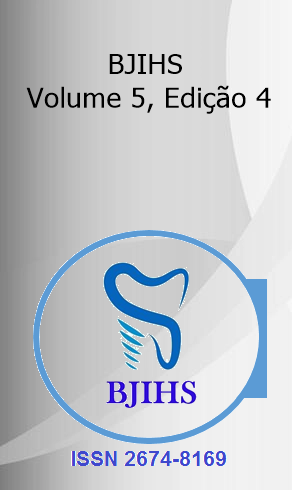Abstract
Childhood autism is a neurodevelopmental disorder characterized by difficulties in social communication, interaction and repetitive behavior patterns. This study aims to carry out an integrative review of the pharmacological interventions used in the treatment of childhood autism, focusing on current approaches. Understanding these interventions is crucial to optimizing clinical management and improving the quality of life of affected children. An integrative literature review was conducted, searching for scientific articles in indexed databases, using descriptors related to childhood autism and pharmacological interventions. Studies investigating the use of drugs in the treatment of autism were included, focusing on recent and relevant approaches. The references were analyzed and organized according to the Vancouver style. Several pharmacological interventions used in the treatment of childhood autism were identified, with methylphenidate and cannabinoids standing out. These have shown positive effects in improving symptoms related to attention and hyperactivity. In addition, studies have pointed to pathophysiological changes, such as immunoregulation, inflammation, oxidative stress and mitochondrial dysfunction, which may offer additional therapeutic targets for future approaches. The integrative review demonstrates the diversity of pharmacological interventions available for the treatment of childhood autism, highlighting the need for a personalized and interdisciplinary approach. The individualization of treatment, taking into account individual characteristics and clinical peculiarities, is fundamental. In addition, the long-term safety and efficacy of pharmacological interventions must be carefully monitored. This study contributes to the current understanding of pharmacological therapeutic options and offers insights for future research in this field.
References
Volkmar, F. R., & Wiesner, L. A. (2009). A practical guide to autism: What every parent, family member, and teacher needs to know. John Wiley & Sons.
Lord, C., Elsabbagh, M., Baird, G., & Veenstra-Vanderweele, J. (2018). Autism spectrum disorder. Lancet, 392(10146), 508-520.
Rossignol, D. A., & Frye, R. E. (2012). A review of research trends in physiological abnormalities in autism spectrum disorders: immune dysregulation, inflammation, oxidative stress, mitochondrial dysfunction and environmental toxicant exposures. Molecular Psychiatry, 17(4), 389-401.
Stachnik, J. M., Natarajan, R., Meltzer, A., Lee, E. B., & Jespersen, S. (2015). Pharmacologic treatment of autism. Pediatric Annals, 44(4), e93-e98.
Handen, B. L., Johnson, C. R., & Lubetsky, M. (2000). Efficacy of methylphenidate among children with autism and symptoms of attention-deficit hyperactivity disorder. Journal of Autism and Developmental Disorders, 30(3), 245-255.
Frye, R. E., Delatorre, R., Taylor, H., Slattery, J., Melnyk, S., Chowdhury, N., James, S. J. (2013). Redox metabolism abnormalities in autistic children associated with mitochondrial disease. Translational Psychiatry, 3(7), e273-e273.
Rossignol, D. A., & Bradstreet, J. J. (2008). Evidence of mitochondrial dysfunction in autism and implications for treatment. American Journal of Biochemistry and Biotechnology, 4(2), 208-217.
Siniscalco, D., Sapone, A., Giordano, C., Cirillo, A. (2013). Cannabinoid receptor type 2, but not type 1, is up-regulated in peripheral blood mononuclear cells of children affected by autistic disorders. Journal of Autism and Developmental Disorders, 43(11), 2686-2695.
Posey, D. J., Aman, M. G., McCracken, J. T., Scahill, L., Tierney, E., Arnold, L. E., Martin, A. (2007). Positive effects of methylphenidate on inattention and hyperactivity in pervasive developmental disorders: an analysis of secondary measures. Biological Psychiatry, 61(4), 538-544.
Hardan, A. Y., Handen, B. L., Nemetz, S. L. (2009). Efficacy of methylphenidate among children with autism and symptoms of attention-deficit hyperactivity disorder. Journal of Autism and Developmental Disorders, 39(5), 680-692.

This work is licensed under a Creative Commons Attribution 4.0 International License.
Copyright (c) 2023 Giovanna Pauletti de Castro, Emanuel Campos Menezes, Gabriela Gabriela , Marina Maria Alencar Pinto Rocha, Ana Flávia Prado de Oliveira, Bianca Santana, Isadora Cristina Teixeira Bono , Edilson Lucas do Amaral Neto , Danielle Beltrão Araujo Mendes Amorim
